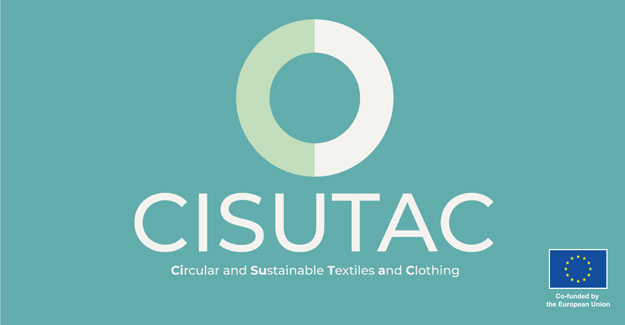
EURATEX, Partners Launch New Horizon Europe Innovation Project On Circular & Sustainable Textiles
Launched last week, the new Horizon Europe project CISUTAC will support the transition to a circular and sustainable textile sector. As part of a consortium of 27 partners working on the project, EURATEX will work towards facilitating the Circular Economy transition. While the production and consumption of textile products continue to grow, so does the impact on the environment caused by a lack of reuse, repair and recycle of materials. Quality, durability, and recyclability are often not being set as priorities in the design and manufacturing of garments (EU Strategy for Sustainable and Circular Textiles, March 2022). CISUTAC aims to remove current bottlenecks in order to increase textile circularity in Europe. The objective is to minimise the sector’s total environmental impact by developing new, sustainable and integrated large-scale European value chains. The project will include most parts of the textile sector: comprising the two groups of fibres that represent almost 90% of all textile fibres (polyester and cotton/cellulose), and focusing on products from three sub-sectors experiencing most circularity bottlenecks (fashion garments, sports and outdoor goods, and workwear). CISUTAC will follow a holistic approach covering the technical, sectoral and socio-economic aspects, and will perform three pilot phases to demonstrate the feasibility and value of:
- Repair and disassembling
- Sorting (for reuse and recycling)
- Circular garments through fibre-to-fibre recycling and design for circularity
- Develop semi-automated workstations
- Analyse infrastructure and material flows
- Digitally enhance sorting operations (for reuse and recycling)
- Raise awareness among consumers and the textile industry
Textile Excellence
If you wish to Subscribe to Textile Excellence Print Edition, kindly fill in the below form and we shall get back to you with details.












